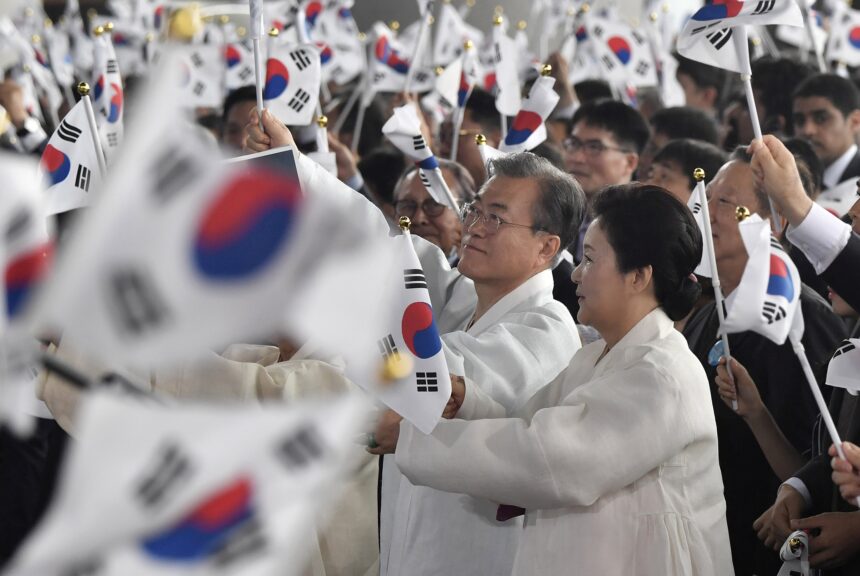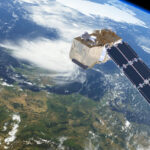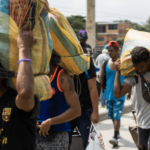Summary by Geopolist | Istanbul Center for Geopolitics:
The Republic of Korea (ROK) has long centered its policy towards the Gulf Cooperation Council (GCC) on economic issues, such as energy security, manufacturing exports, and construction contracts. Historical economic relations, especially during the 1970s, significantly contributed to Korea’s industrialization. Presently, Korea imports a large portion of its oil from the GCC and continues to engage in GCC diversification projects. Both regions aim to strengthen economic ties through agreements like the Comprehensive Economic Partnership Agreement (CEPA) with the UAE, covering sectors such as nuclear power, defense, and AI. GCC countries view Korea as a model for stable development and cooperation.
For more details, read the full article below:
The policy of Republic of Korea (ROK) towards the GCC has traditionally centered around economic issues, such as securing a stable supply of energy, manufacturing exports destinations, and construction contracts and engaging in the ongoing diversification projects. Historically, the economic relations between Korea and the GCC played a crucial role in Korea’s rapid industrialization during the 1970s. With the oil shock of late 1973, the GCC construction market opened up, and Korean companies began winning contracts to build roads, ports, and other infrastructural facilities. The influx of foreign currency from the GCC, paid for mega construction projects undertaken by the Korean government, conglomerates, and workers, served as seed money and a significant driver in the subsequent economic rise. Later on, Korea was able to achieve significant growth progress and grew into a part of the global economic system focusing on its active export-oriented strategy looking outward.
As the world’s eighth largest energy consumer, Korea imports approximately 71% of its oil solely from the Middle East and North Africa (MENA), particularly the GCC, and 60% of its overseas construction contracts come from the region. Moreover, Korea has sought economic cooperation on GCC’s diversification projects, moving beyond the traditional energy and construction sectors. The Republic of Korea seems to bee betting on a second wave of the so-called Middle East boom, following the first oneb in the 1970s. In 2023, President Yoon Suk Yeol visited the Kingdom of Saudi Arabia (KSA), the United Arab Emirates (UAE), and Qatar which are striving to diversify their economies away from oil dependency through ambitious projects, including the development of high-tech futuristic industries powered by alternative energy sources.
During the first state visit of UAE President Mohamed bin Zayed (MbZ) Al Nahyan to ROK in May 2024, Korea and UAE signed a Comprehensive Economic Partnership Agreement (CEPA) aimed at eliminating tariffs on over 90% of traded goods within the next decade. The CEPA provides a competitive edge to Korean exporters compared to their counterparts in the U.S., the EU, Japan, China, and others. The two countries emphasized all-encompassing cooperation in the fields of nuclear power, energy, defense, AI and other advanced technologies. During the summit, two leaders reaffirmed the sovereign wealth funds of UAE will invest $30 billion in strategic sectors within Korea.
It is critical to point out that Korea also shares non-economic interests with its GCC partners. Since the early 2010s the ROK has expanded its foreign policy scope beyond the Korean Peninsula and Northeast Asia and strengthened its role as a responsible middle power actively participating in humanitarian aid, peacekeeping, and counter-terrorism efforts in the MENA region, the world’s most fragile conflict-affected area. It has responded proactively to instability throughout the region and promoted Seoul’s global reputation defending a rules-based liberal order. In doing so, Korea has strengthened military cooperation with the KSA, the UAE, Qatar, and Bahrain which also valued their defense alliances with leading European powers and the U.S.
What does the GCC want from the ROK
Since the 2011 Arab Spring, most GCC states have hoped to emulate the ROK’s development model, which allowed for an accumulation of wealth, ensured stability, and preserved time-tested cultural values. The Arab Spring, as a series of anti-government protests, destabilized several regimes and eventually gripped the whole region, plunging Syria, Yemen, and Libya into endless civil wars. Most GCC states faced demographic conundrums and became aware that long-term stability necessitated both an industrious as well as satisfied population. Therefore, conservative GCC governments with traditional and communitarian societies have planned to facilitate market-based development and reform inefficient bureaucracy but in an evolutionary way. In this vein, it is critical for the GCC leaders to keenly look at the ROK model’s recipes to enhance state capacity, adopt a work ethic, create jobs, achieve authority, and avoid destabilizing traditional societies.
Neither Westernization nor command economies were attractive to the traditional but market-friendly GCC leaders. Both Islam and liberalism shared a common opposition to socialism and the state-controlled economy. Then, the ROK model suggests that capable developmental states enjoy informal cooperative ties with business groups in society, and Asian traditional values are conducive to development without sudden rupture from the past, including political upheavals.
Then-deputy Crown Prince Muhammad bin Salman al Saud (MbS) of KSA noted at the 2016 G20 summit that Korea was the latest country that had successfully transformed itself within one generation, and it would be a model for growth for KSA which had embarked in an unprecedented transformation from a rentier-state model. In fact, the ROK has become a donor country from being a recipient of UN aid in less than half a century, a transformation that has inspired the developing world. Similarly, MbZ, then-Crown Prince and the de facto ruler of Abu Dhabi, stated at the 2018 ROK-UAE summit that the ROK has adopted a unique development model, and this kind of development has been one of the chief priorities of the UAE in the post-oil era. Likewise, Tamim bin Hamad al-Thani, the Emir of Qatar on his visit to Seoul in 2014, said that South Korea’s model would serve Qatar’s development strategy.
Also, the military and defense paradigm, a new part of the ROK model, has been well received by the GCC leaders. The GCC countries have prepared themselves for a nuclear Iran, its regional proxies, and the possible departure of the U.S. to the Indo-Pacific region, which necessitated desperate reassessments of the existing defense mechanisms. KSA and UAE have planned to protect themselves by acquiring defense capabilities without necessarily transforming into a regional hegemonic power. The GCC states rejected the Iranian, Turkish and Israeli models with military adventurism. Upon the request of the UAE in 2010, Korea dispatched the 1st division of the Akh, meaning the “brothers,” in Arabic. The UAE as the only MENA country to establish a Special Strategic Partnership with Korea is also uniquely the sole foreign country where Korea has deployed athe military education unit. The Akh Unit stood as the symbol of trust between the ROK and the UAE. Approximately 400 soldiers, who have either returned from or are scheduled to deploy with the Akh Unit, lined up to salute MbZ’s motorcade during his state visit to Korea in May 2024.
Implications
The rising popularity of the ROK model among GCC countries is a quite new phenomenon. Then, Korea should actively utilize such policy resources in order to restore the deteriorating liberal order in MENA with the global partners. In fact, the Yoon administration has actively projected a vision of becoming a global pivotal state rejecting a confined position to the Korean Peninsula and providing global public goods. Violent extremism takes root in marginalized areas using local grievances to recruit youth suffering from persistent underdevelopment. Such crises introduce alert threats to global security. Although Korea is a new player in developing and stabilizing the MENA region, the GCC states look at Korea as a valuable partner for economic and defense cooperation, something that advanced mutual interests in terms of ROK-GCC ties especially when the U.S. seems to be concentrated on the Indo-Pacific region leaving the MENA.
Source: ISPI







